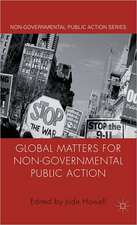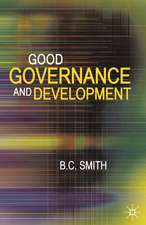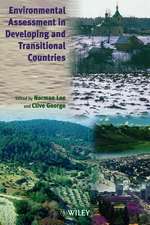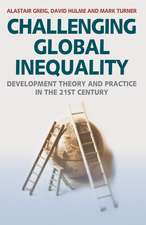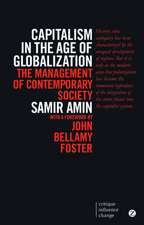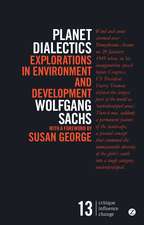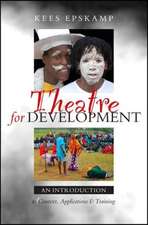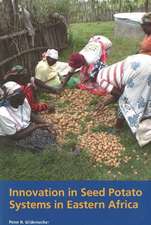Arresting Development: The power of knowledge for social change
Autor Craig Johnsonen Limba Engleză Hardback – 24 noi 2008
This book is about the ways in which ideologies shape the construction of knowledge for development. A central theme concerns the impact of neo-liberalism on contemporary development theory and research. The book’s main objectives are twofold. One is to understand the ways in which neo-liberalism has framed and defined the ‘meta-theoretical’ aims and assumptions of what is deemed relevant, important and appropriate to the study of development. A second is to explore the theoretical and ideological terms on which an alternative to neo-classical theory may be theorized, idealized and pursued. By tracing the impact of Marxism, postmodernism and liberalism on the study of development, Arresting Development contends that development has become increasingly fragmented in terms of the theories and methodologies it uses to understand and explain complex and contextually-specific processes of economic development and social change. Outside of neo-classical economics (and related fields of rational choice), the notion that social science can or should aim to develop general and predictive theories about development has become mired in a philosophical and political orientation that questions the ability of scholars to make universal or comparative statements about the nature of history, cultural diversity and progress.
To advance the debate, a case is made that development needs to re-capture what the American sociologist Peter Evans once called the ‘comparative institutional method.’ At the heart of this approach is an inductive methodology that searches for commonalities and connections to broader historical trends and problems while at the same time incorporating divergent and potentially competing views about the nature of history, culture and development. This book will be of interest to scholars and students of Development, Social and Political Studies and it will also be beneficial to professionals interested in the challenge of constructing "knowledge for development."
| Toate formatele și edițiile | Preț | Express |
|---|---|---|
| Paperback (1) | 114.17 lei 43-57 zile | |
| Taylor & Francis – 24 noi 2008 | 114.17 lei 43-57 zile | |
| Hardback (1) | 849.29 lei 43-57 zile | |
| Taylor & Francis – 24 noi 2008 | 849.29 lei 43-57 zile |
Preț: 849.29 lei
Preț vechi: 1141.37 lei
-26% Nou
Puncte Express: 1274
Preț estimativ în valută:
162.51€ • 170.10$ • 135.26£
162.51€ • 170.10$ • 135.26£
Carte tipărită la comandă
Livrare economică 31 martie-14 aprilie
Preluare comenzi: 021 569.72.76
Specificații
ISBN-13: 9780415381543
ISBN-10: 0415381541
Pagini: 208
Ilustrații: 2 b/w images, 3 tables and 2 line drawings
Dimensiuni: 156 x 234 mm
Greutate: 0.54 kg
Ediția:1
Editura: Taylor & Francis
Colecția Routledge
Locul publicării:Oxford, United Kingdom
ISBN-10: 0415381541
Pagini: 208
Ilustrații: 2 b/w images, 3 tables and 2 line drawings
Dimensiuni: 156 x 234 mm
Greutate: 0.54 kg
Ediția:1
Editura: Taylor & Francis
Colecția Routledge
Locul publicării:Oxford, United Kingdom
Public țintă
Postgraduate and UndergraduateCuprins
1. Deconstructing ‘Knowledge for Development’ 2. The ‘Poverty of History’ in Neo-classical Discourse: Positivism, New Institutionalism and ‘the Tragedy of the Commons’ 3. Exporting the Model: Marxism, Postmodernism and Development 4. Development as Discourse: Contesting the Politics of ‘Post-Development’ 5. Development as Freedom of Choice: From Measurement to Empowerment to Rational Choice 6. Advancing Knowledge for Social Change
Notă biografică
Craig Johnson is Associate Professor of Political Science at the University of Guelph in Canada. He has published widely in the field of governance, decentralization and sustainable development, focusing mainly on Asia. His most recent publication (co-edited) is Policy Windows and Livelihood Futures: Prospects for Poverty Reduction in Rural India (Oxford University Press, 2006).
Descriere
Tracing the historical and intellectual origins of post-development, Arresting Development, explores the impact of post-development theorizing on the study of international development and it compares across "cultures" of theory, methodology and practice to achieve universal understandings about values, identity and development.



